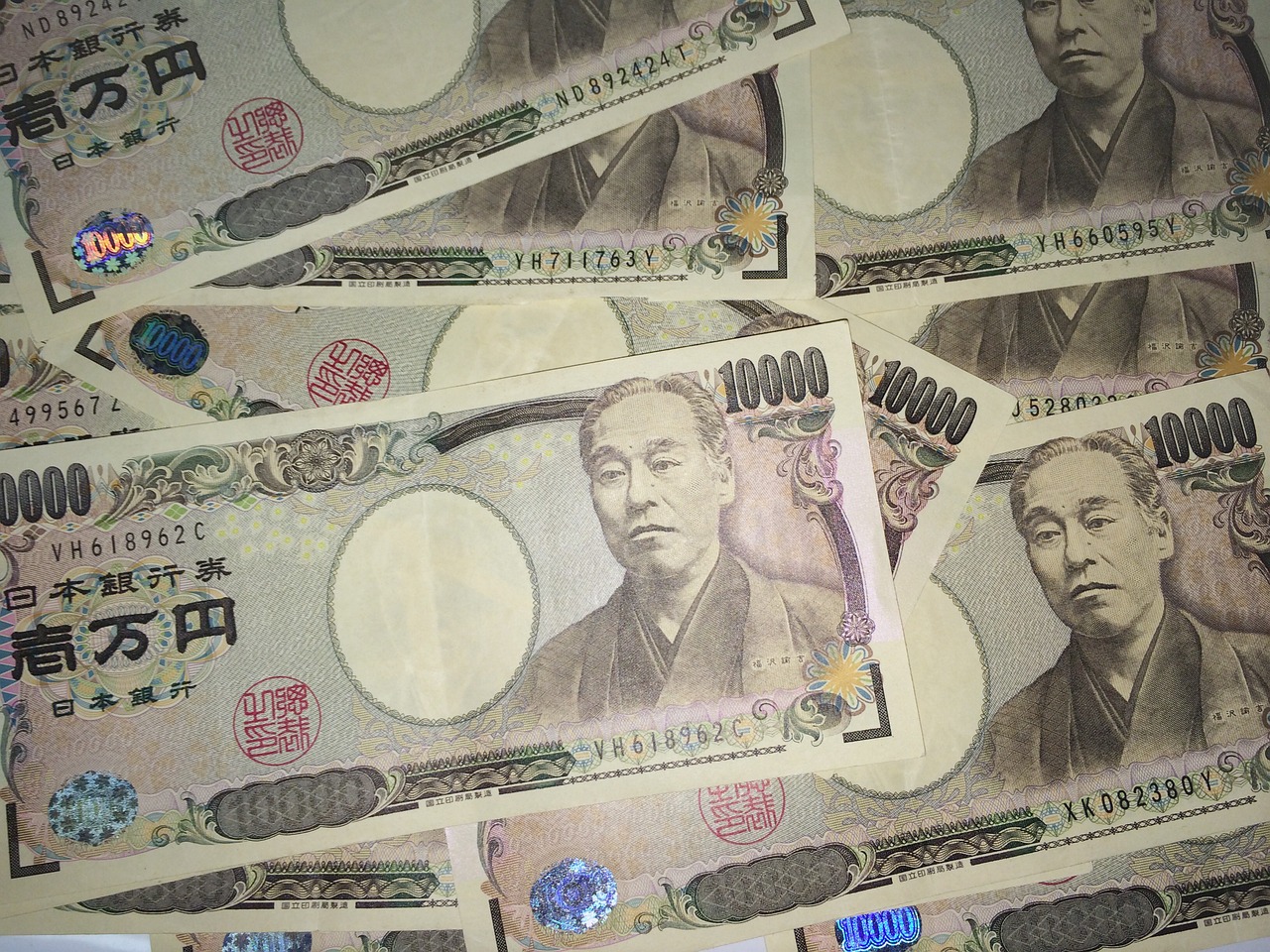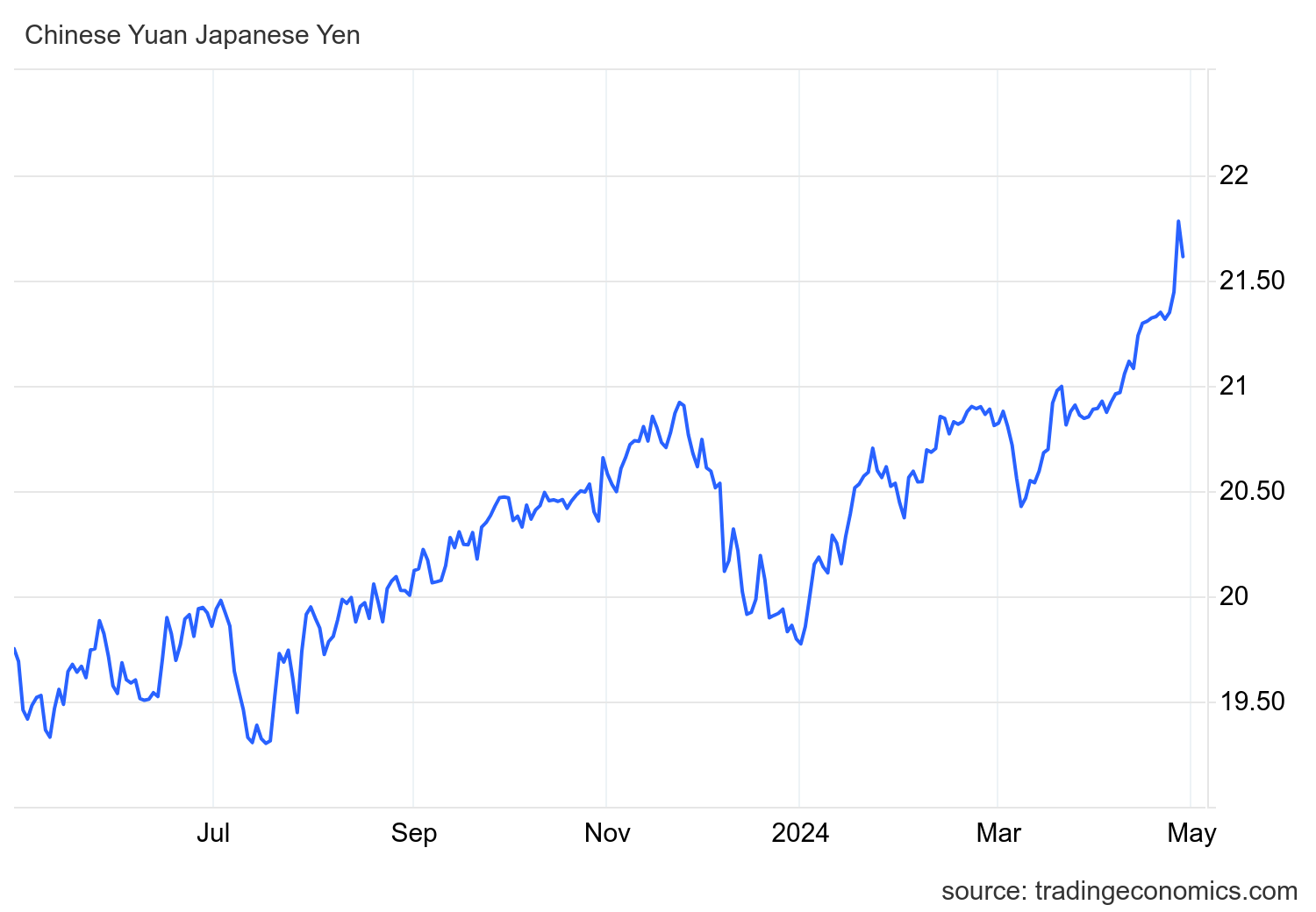Economy and business
The yen first plunges and then rebounds. BoJ to blame?

The yen crashed literally at the start of trading in Asia today, plummeting to the lows of April 1990, in what is attributed to a ‘fat finger’ or multiple barrier-option operation but was probably instead the consequence of something else.
The slump extended Friday’s big drop, which followed BoJ Governor Ueda’s apparent lack of interest in supporting the yen’s decline since the BoJ, as was widely expected, had decided not to intervene in defense of the currency. His words had been quite clear.
“Exchange rates are not a target of monetary policy to be directly controlled,” Ueda said.
“But currency volatility could be an important factor in the impact on the economy and prices. If the impact on underlying inflation becomes too great to ignore, it could be a reason to change monetary policy.”
The words are not, in and of themselves, wrong, but openly stating that we do not care about currency values but only about volatility comes to create volatility, and the results are seen on the exchange rate:

The bounce you see in the very early European morning and late Asian afternoon is related to rumors of BoJ intervention, that is, the suspicion that Ueada, faced with this volatility, had decided to do what it had promised not to do.
But now we have to see if these are just rumors to calm the market or they correspond to objective actions. Because, taking away the volatility or the “fat finger” mistake, Ueda is right: the central bank should not force a change but , if anything, help it on a continuous and steady path until economic rebalancing. It will be the market that will bring things back on track, removed from excessive volatility.
Japan’s current account balance is positive, so this devaluation is mainly related to the “Carri trade,” the transfer of money from low-interest to high-interest markets. However, if this does not strongly impact inflation, as it is not doing, why should it concern the central bank?
The issue is viewed differently, however, by the Japanese government: policymakers have repeatedly warned that depreciation will not be tolerated if it is pushed too fast.
Finance Minister Shunichi Suzuki reiterated after the BoJ meeting that the government will respond appropriately to exchange rate moves, although it is not clear how this will happen in the short term.
An additional point of interest in all this is the gradual devaluation of the yen against the yuan.

Which could realign various trade flows between the two countries and vis-à-vis the world.






